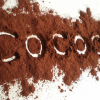Effects of CDP-choline and the combination of CDP-choline and galantamine differ in an animal model of schizophrenia: Development of a selective α7 nicotinic acetylcholine receptor agonist strategy
The regionally selective reduction of expression of the α7 nicotinic acetylcholine receptor (α7 nAChR) in schizophrenia underlies impaired sensory inhibition, a possible endophenotype of the disorder. This ligand-gated ion channel receptor has been proposed as a pharmacotherapeutic target in schizophrenia. The current study examined the effect of CDP-choline alone and the combination of CDP-choline and galantamine, administered acutely and once-daily for five consecutive days, in an animal model of NMDA receptor hypofunction that is relevant to schizophrenia. The results support the allosteric modulatory influence of galantamine on CDP-choline; however, individual doses of CDP-choline and galantamine must be carefully titrated in order to achieve optimal levels of α7 nAChR "agonism" that may be necessary for the desired therapeutic effect.
Galantamine alone didn't do much for me personally but I haven't tried CDP-choline yet. Interesting study nevertheless, especially the discussion part. Has anyone tried CDP-choline with galantamine?
Since product grade is frequently suspect, I would go the pharmaceutical route for better results. But it should be noted that the effects of acetylcholinesterase inhibitors vary with pathology, and since you're almost certainly not suffering from accelerated apoptosis, I would expect the results would be limited. For normal subjects, the most pronounced improvement would be in the domain of episodic memory, but I wouldn't expect anything spectacular. I know it must be frustrating, because the number of pathways for pervasive disorders are enough to compel a reluctant and bitter defeat, but you owe it to yourself to sustain your efforts. Anyway, since I---like many others---have sacrificed an embarrassing number of hours reading a broad spectrum of medical literature, I suppose I could list what I deem to be the most noteworthy recurring correlates in many disorders:
1. NMDA receptor hypoactivity.
2. A disruption in COMT activity, and by extension, a reduction frontal catecholamine volume.
3. Reduced reelin protein levels.
4. An aberrant inflammatory response, and consequentially, a disconcerting rate of programmed cellular death.
5. A reduction of a7 nAChR expression.
6. Changes in choline transferase and acetylcholinesterase enzymatic activity.
7. An imbalance in D1 and D2 receptor expression.
8. A adverse change in glucose metabolism.
9. Phosphodiesterase mediated changes in vasodilation (especially PDE4).
10. A mysterious change in MAO-A enzymatic activity.
11. A disruption in the circadian rhythm.
12. Mitochondrial dysfunction, especially in terms of the synthesis of Adenosine Triphosphate.
13. A multi-causal reduction in neurotrophic factors and neuroplasticity.
14. Multiple areas of gastrointestinal dysfunction.
15. And the list goes exhaustingly on and on....
Presently, I think it's abundantly clear to me now that many pervasive disorders have similar correlates and etiologies, and differ primarily in terms of symptom presentation. But despite the parallels, I doubt there's a panacea treatment, because this cascade of symptoms is probably owing to either inherited genetic traits, or a DNA mutation that may be irreversible once a disorder progresses to a certain stage. So I'm afraid to say that afflicted subjects can probably only hope to attenuate the intensity of their symptoms, which unfortunately, is a reduction functionally related to the amount of money one is willing to pay. And since each subject is unique, I'm reluctant to render narrow medical advice, and only feel comfortable with providing a list of possible treatments---so that the algorithm can be individually determined.
Possible treatments
1. SSRIs (
Fluvoxamine,
Sertraline, Escitalopram, and Citalopram).
2. Psychostimulants (
Amphetamine salts,
Modafinil, Methylphenidate, Freeze Dried Coffee, and Transdermal Nicotine).
3. MAO Inhibitors (Nardil, Selegiline, and
Rasagiline),
4. Mood Stabilizers (
Valproate and Lamotrigine).
5. Antipsychotics (Aripiprazole, Ziprasidone, and
Amisulpride).
6. COMT Inhibitors (
Tolcapone, Entacapone, and
Adenosyl Methionine).
7. Anxiolytics (
Buspirone, Baclofen,
Theanine, Sceletium Toruousum, and Hypericum Perfortum).
8. Flavonoids, Catechins, and Phenols (
Resveratrol---NitroMx, Luteolin, Pycnogenol, Green Tea Extract, and Grape Seed Extract).
9. Essential Fatty Acids (
Olive Oil,
Fish Oil, Flax Seed Oil,
Chia Seeds, and Hemp Oil).
10. Alcohol (
Cabernet Sauvignon, Malbec, Pinot Noir, Champagne, Rhone, Bordeaux, and Burgundy).
11. Essential Vitamins (Multivitamin,
Methylcobalamin,
Methylfolate, Vitamin A, Vitamin D, and Vitamin K2).
12. Antibiotics (
Minocycline, Rifampicin, and Doxycycline)
13. Antiviral (Valaciclovir).
14. NSAID (Celecoxib and
Naproxen),
15. Antihyperintensive (Nimodipine, Clonidine, Guanfacine, Propanolol, and Losartan)
16. Antifungal (Diflucan)
17. Antihyperlipidemic (Atvorastatin, Simvastatin, and Cholestyramine).
18. Antidementia (
Donepezil, Galantamine, and Rivastigmine).
19. Immunosuppressants (
Rapamycin and Cyclosporine).
20. Hormones (
Testosterone Undecanoate,
Triiodothyronine, and Thyroxine).
21. Anti-Parkinson's (Apomorphine, Bromocriptine, and Cabergoline)
22. Tricyclic Antidepressants (Amineptine)
23. Phosphodiesterase Inhibitor (Tadalafil, Sildenafil, Propentofylline, and Roflumilast)
24. Anti-Emetic (Ondansetron and Tropisetron)
25. Hallucinogen (Psilocybin and Cannabis)
26. Anti-Diabetic (
Metformin, Pioglitazone, and Rosiglitazone).
27. Bronchodilator (Salbutamol)
28. SARI (Trazadone and Nefazadone)
29. Tetracyclic (Mirtazapine)
30. Opiate (Buprenorphine)
31. Nootropic (
Ortho Mind, Oxiracetam, Pramiracetam, and
Pregnenolone)
To save yourself from the heartbreak of discovering that your hopes in an ostensibly broad spectrum "holy grail" of a supplement was lamentably misplaced, I encourage a preference for more psychoactive agents---which almost universally require a prescription. But if you can manage to procure any of these desired drugs through conventional means, then you should do so, and spare yourself the potential consequences of erring. Additionally, although some of the exotic drugs have a certain amount of allure, usually they're ineffectual or impractical. Instead, place your faith in the study outcomes, and the quantity of research publications----which is an excellent indicator of an agent's therapeutic potential. Indeed, the behavior of market participants may be bounded by the flow and quality of information, but given the capital at the disposal of major players, it's rare that significant opportunities are overlooked. Which means that if an exotic drug is not being sponsored by a leading pharmaceutical company or undergoing a sizable clinical trial, then it probably has a limited utility.
Edited by Rol82, 18 March 2011 - 12:45 AM.


















































